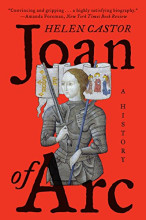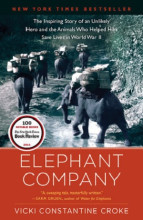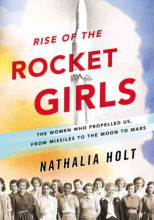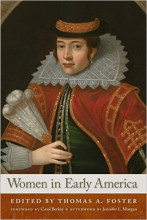Annie Zhou
Posts tagged with history
Showing 1 - 10 of 18 items

Annie Zhou, a second-year master’s student in Educational Studies, explores culturally responsive teaching and what constitutes "good teaching".
Inspired by his passion for Dutch language and culture, Ton Broos left a legacy of academic excellence and cultural preservation through funds that bring the past to the present.

Helen Castor tells the story of Joan of Arc in the context of her times. The book is a history of the part of the Hundred Years' War in which Joan played a major role, and it begins with the English victory at Agincourt in 1415. Castor writes about the political factions, and shifting alliances, in France at the time, and about how Joan's appearance at the French Dauphin's court, followed by her victory at Orléans in 1429, changed the course of the war. She also writes compellingly and movingly of Joan's trial. For biographical information about Joan, look elsewhere, but this book is excellent as a history of her times.

February is Black History Month. The Shapiro Book Display will feature non-fiction books by black authors, in honor of past and current leaders, events, and movements. Be sure to stop by the lobby to see what's on display

Elephant Company by Vicki Constantine Croke is a biography of "Elephant Bill" James Howard Williams and the hundreds of elephants he worked with in Burma in the first half of the last century.

Rise of the Rocket Girls profiles multiple generations of women working at the Jet Propulsion Laboratory from the 1940s to present. The book highlights gender-based challenges as well as scientific ones, and accessibly explains engineering concepts. Readers who loved Hidden Figures will not be disappointed by this book.

While the start of the 2017 college football season is still a long way off, you can binge on the glorious and fascinating history of Michigan Football year round by visiting the library. The Hatcher and Shapiro Libraries have enough books about Bo Schembechler, the Big House, and our famous football rivalries to satisfy even the strongest appetite for gridiron history.

The Value of the Dollar is an interesting collection of historical information on topics ranging from the prices of different goods, the wages made by people in different jobs, and other measures of the value of the dollar over time.

Women in Early America (NYU, 2015), edited by Thomas Foster, is the latest in a line of scholarly histories examining the ways that seventeenth- and eighteenth-century women were actually key players in the economic, cultural, and political life of the American colonies despite the many legal and societal obstacles they had to overcome due to their gender. Most chapters in this wide-ranging work, each written by an expert in the field, focus on specific regions or identities. There is a chapter on the gendering of slave ownership in colonial Jamaica, for example, and another on trade and power in Early French America and Detroit. More familiar topics are also covered, like the connections between witchcraft and resistance to patriarchy or the lives of loyalist women in British-occupied New York City. Our own Mary C. Kelley, Ruth Bordin Collegiate Professor of History, American Culture, and Women's Studies, contributes the final chapter of the book. As in her well-known work Learning to Stand And Speak: Women, Education, And Public Life In America's Republic (UNC, 2006), Kelley discusses the ramifications of a revolution in women’s educational opportunities between the Revolutionary and Civil Wars that enabled many to take up positions in the public sphere as writers, educators, and reformers.

Take a look behind the scenes at the Michigan Theater and stroll down memory lane (and way beyond for most of us) to the 1920s and the early days of this wonderful community treasure and then move up through time to the theater's current role in the Ann Arbor arts scene.